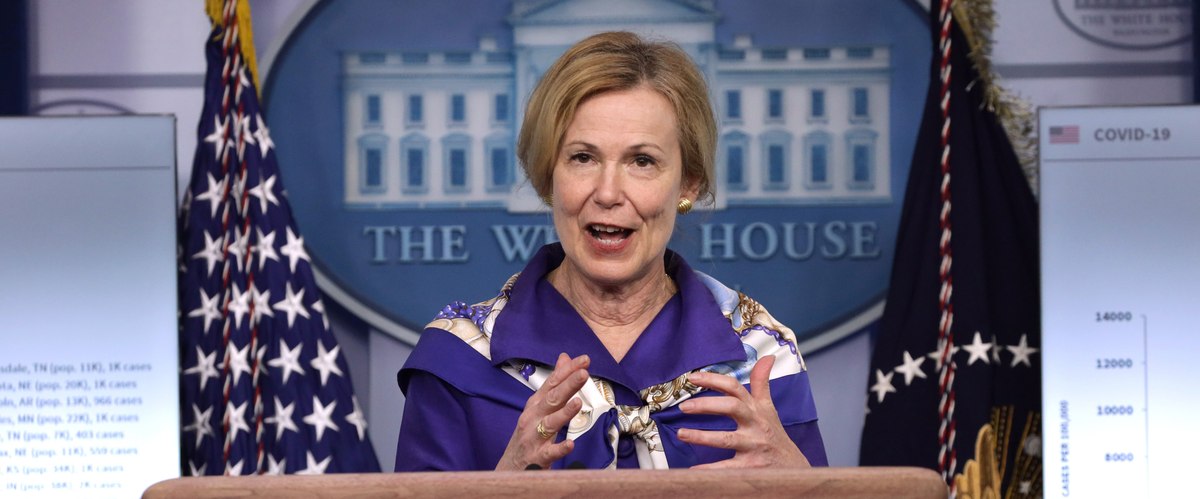Nearly two in five Americans are unsure if they trust Dr. Deborah Birx for medical advice, the US Global AIDS coordinator, US Special Representative for Global Health Diplomacy, and coordinator of the White House coronavirus task force.
The latest Economist/YouGov data on America’s faith in Dr. Birx comes as the number of confirmed cases in the United States reaches over 5.4 Million, and as Dr. Birx travels the country sharing her concerns over the COVID-19 pandemic.
Dr. Birx is not trusted very much for medical advice, with only 9 percent of Americans saying they trust her a lot, and one in five (21%) stating they somewhat trust her. Less than one in five (15%) Americans say they neither trust or distrust Birx, compared to 10 percent who somewhat distrust her, and 6 percent who distrust Birx a lot. Nearly two in five (38%) Americans are not sure how they feel about Dr. Birx.
Trust in Dr. Birx remains relatively the same among party lines, although Democrats (12%) and Republicans (11%) are more likely than Independents (5%) to say they trust Dr. Birx a lot. Republicans (19%) are more likely than Independents (17%) and Democrats (13%) to say they distrust Birx.
Americans are more likely to trust the medical advice from Dr. Anthony Fauci (55%), President Trump (32%), Joe Biden (36%), and the Center for Disease Control and Prevention (50%), than the medical advice of Dr. Deborah Birx.
See the toplines and crosstabs from this week's Economist/YouGov Poll
Methodology: This Economist survey was conducted by YouGov using a nationally representative sample of 1,500 US registered voters interviewed online between August 2 – 4, 2020 and August 9 – 11, 2020. This sample was weighted according to gender, age, race, and education based on the American Community Survey, conducted by the US Bureau of the Census, as well as 2016 Presidential vote, registration status, geographic region, and news interest. Respondents were selected from YouGov’s opt-in panel to be representative of all US citizens. The margin of error is approximately 3.5% for the overall sample.
Image: Getty









